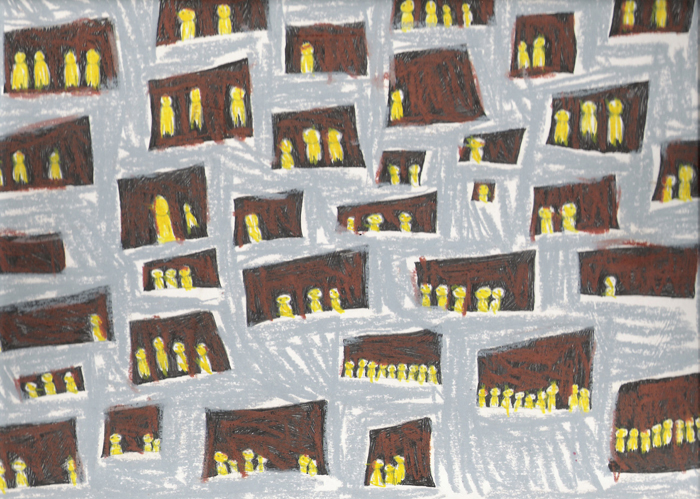Has it ever happened to you, when being introduced to someone non-glamorously dressed and with a determined look, that your train of thought quickly goes “Anti-globalist, leftist/anarchist, against consumerism, pro-environment, stands for animal’s, gay’s, woman’s rights, weed legalisation, into artisan stuff and, high chance, vegetarian”? If yes, you are very lucky to be among (rather a minority of) like-minded people who will treat your senses with care. Although, you are likely to spend the rest of conversation nodding and counting “I knew it” and “I thought so”. “Present-day educational system is in crisis and unhealthy for our mind?” – a nod and one more count. Spending most of time with “non-mainstream” dudes you might learn how to quickly identify “pro-environment” followers, “science, Dawkins, smart-technology-will-save-the-world” guys, “spiritualism & find-your-path-to-fulfilment” witnesses, “fantasy, games, manga & other comics” fans, “vintage clothes, arthouse films, modern art & literature” charmers etc. At some point, especially if your eye-sight is far from perfect, you almost believe you have met your new acquaintance already (how else would you know what his/her favourite pastime, bar and dietary preferences are?). In other words, déjà vu. At the end of the day, guessing on what a person is about before even getting acquainted reaches a level of a bad habit and, against your own will, you make a bet that this one is into Murakami’s books and that one is going to preach about how veganism will save the world.

Why, in the first place, these label-like expectations pop up in the head with an annoying persistence? Traditionally, the best answer is to blame social media and the way it influences our perceptions. With another shared quote and picture, subscribing to an existing point of view without creating our own content, we define our “domain” for all others out there. As a result, acquaintances are often seen as a fragmentized set of statements and pictures, often clone-similar to someone else’s. Perhaps, this approach is projected onto real life communications almost automatically, together with a need for associations.
The other thing is, no matter how many times you tell yourself that sorting people into boxes is wrong, there certainly is some factual justification. It is, of course, based on a very superficial layer of personality – as deep as an introductory conversation allows to discover. Once again a conversation with charming and interesting people turns into something very familiar and you cannot escape the impression that you have heard exactly same arguments many times before. How have interests, ideas, views and arguments become so clusterized in times of a great variety of uncensored options? It seems that non-mainstream options are also supplied in packages to which we fully or partially subscribe instead of building a system/lack of it/ of our own. Certainly, views co-evolve in parallel and organize themselves in a system yet it still feels strange that we often choose to introduce ourselves through a fixed set of ready concepts, making a flow of conversation so predictable. Why do we choose to define ourselves as “vegan”, “environmentalist”, “atheist”, “spiritualist” or give it all away with hipster clothes, as if they fully reflect the rest of personality? Awaiting for surprises and intriguing ideas from new acquintances is one of most enjoyable life pleasures and, by sticking to clichés, we deprive each other of it.
Perhaps, even non-mass-produced inevitably becomes a cliché with time or it’s a matter of intellectual survival in clusters (read “boxes”) in order to withstand the great pressure of vanilla-glamorous consumerist mainstream.
P.S. As a resident of one of the boxes described, I hope this article does not seem offensive to anyone.
